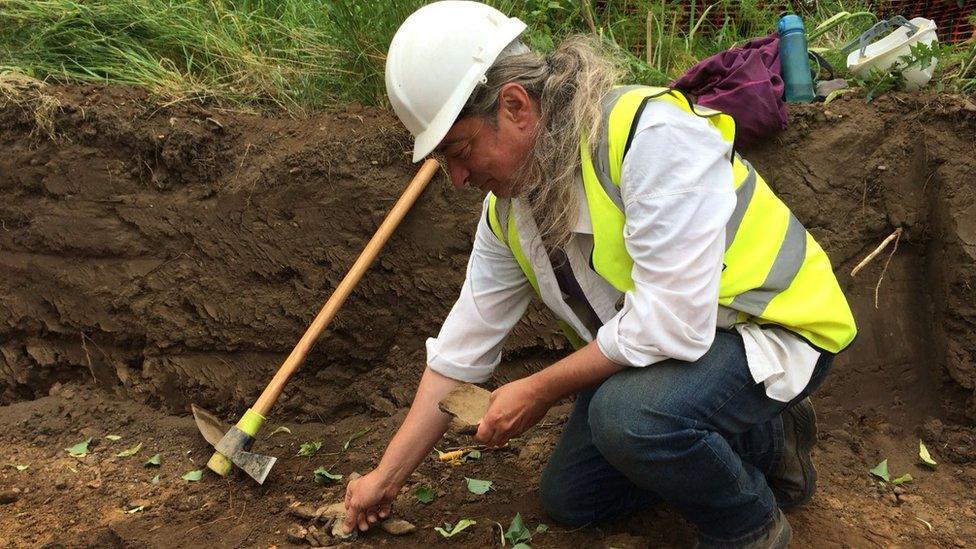Bedfordshire A428 dig: 'Hugely significant' Roman farm found
- Published
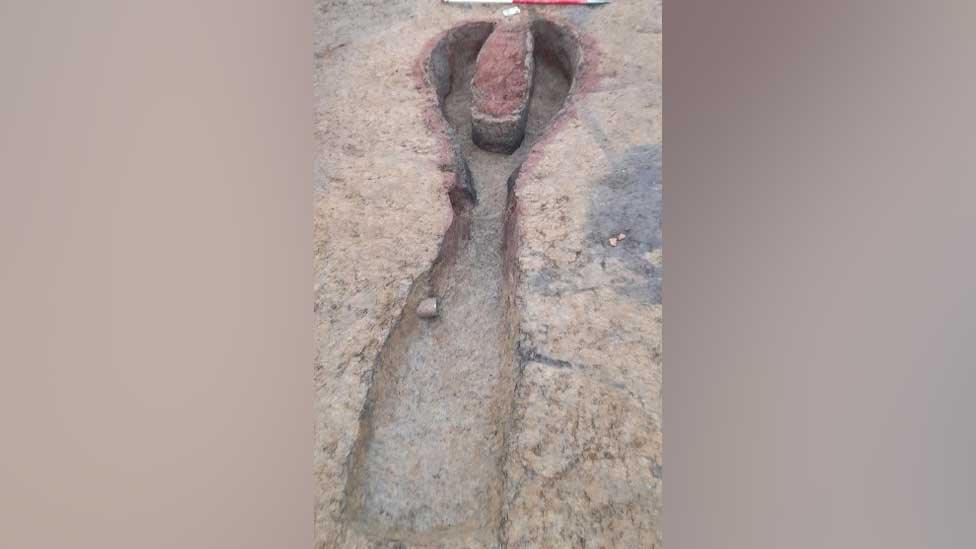
A Roman kiln was unearthed, with a large number of wasters - pots which failed during firing
Archaeologists have unearthed "hugely exciting and significant" Roman finds ahead of a road improvement scheme.
The ancient farm was discovered during excavations near Tempsford in Bedfordshire, as part of proposed work on the A428 Black Cat to Caxton Gibbet.
Its history spans about 700 years from the Middle Iron Age (300 to 100BC) to beyond the Roman era.
The dig revealed two large round houses and a Roman pottery kiln, with a large number pots which failed during firing.
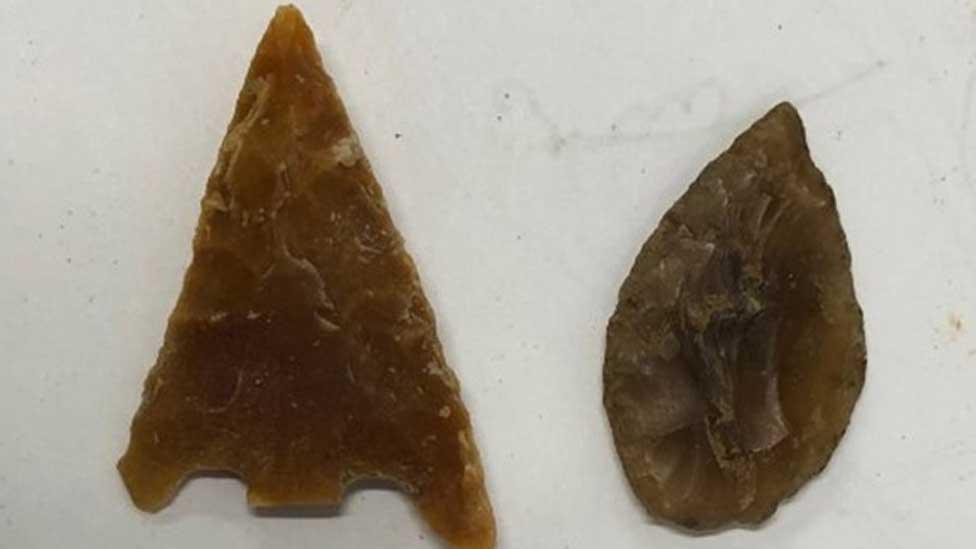
Ancient arrow heads revealed people were hunting across the landscape thousands of years ago
Neolithic and Bronze Age flint arrowheads were also discovered dating to between 4000 to 700BC, suggesting people were hunting animals in the area well before the farmstead existed.
The two 15m (49ft) round houses were the first evidence of a settlement at the site, alongside remains of butchered animals, pottery, loom weights for weaving and personal items.
The farm expanded after the Roman conquest in AD43.
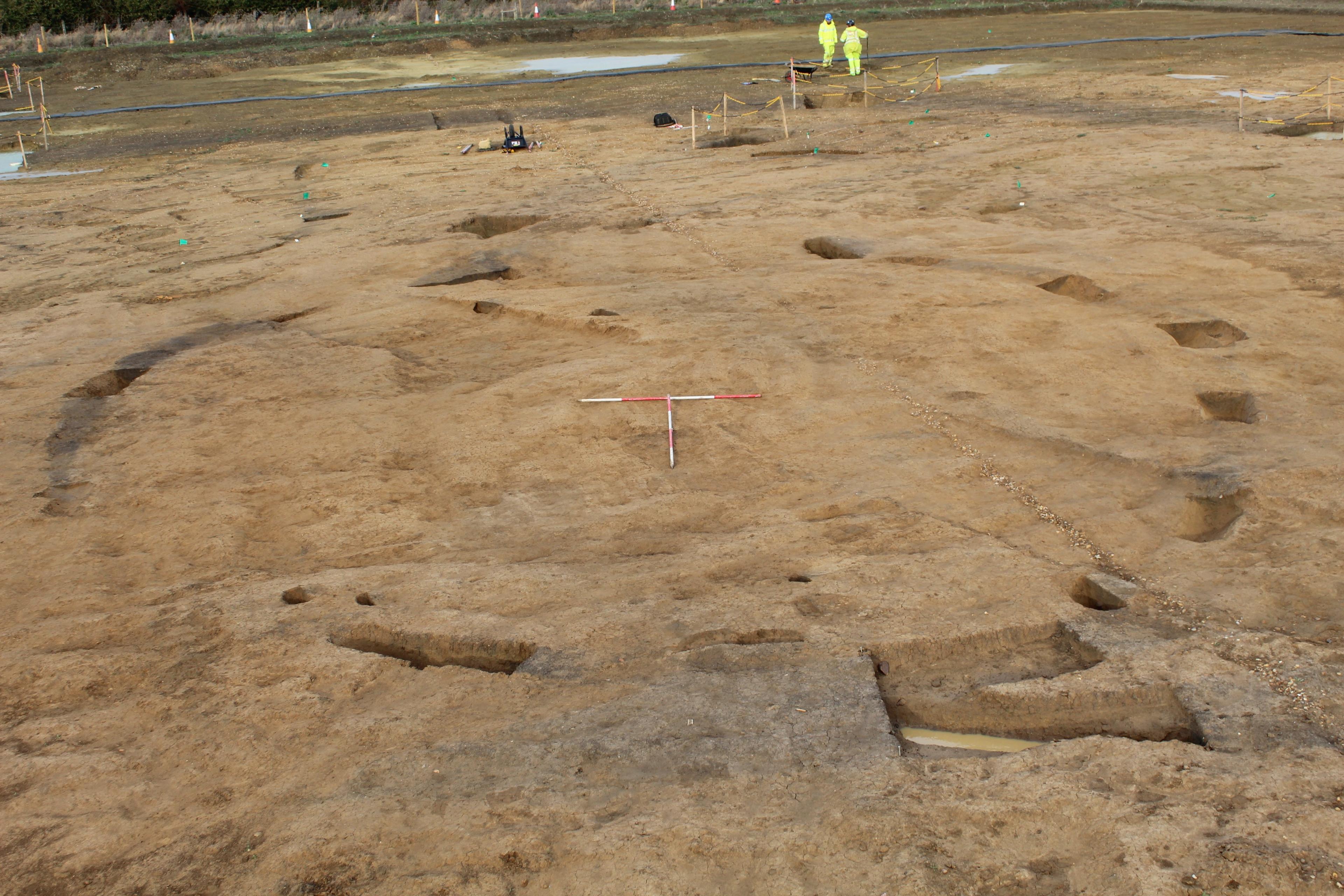
Two large round houses were the first evidence of people settling down at Tempsford
Lead archaeologist Dr Steve Sherlock said: "What is particularly exciting is the site was initially established beside a substantial boundary ditch and we think this boundary was used to define perhaps a tribal area.
"This large ditch seems to have been maintained and occasionally redefined, whilst Iron Age settlements here and elsewhere respect the feature."
Archaeologists from Museum of London Archaeology, external and the Cambridge Archaeology Unit, external also excavated a Roman oven used to dry grains and make malt for brewing and a number of higher status small finds, external, beyond what they would have expected to discover at a farmstead in that part of Roman Britain.
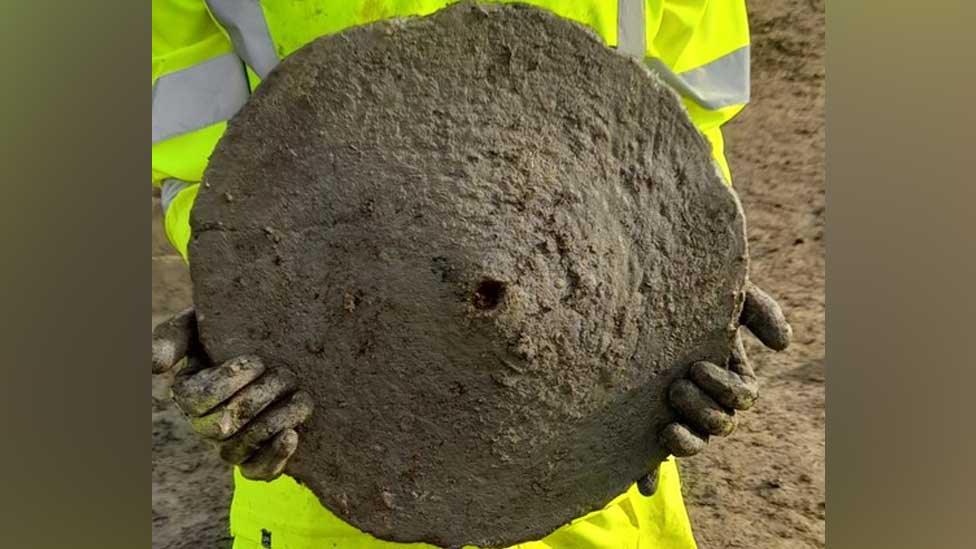
This Roman quern or hand mill would have been used to grind grains
They believe the site was used both for production and trading.
Dr Sherlock said the farmstead was a "hugely exciting and significant find, as it helps to further shape our understanding of what life in Bedfordshire was like over a period of 6,000 years".
The finds will be sent for expert analysis.

Find BBC News: East of England on Facebook, external, Instagram, external and Twitter, external. If you have a story suggestion email eastofenglandnews@bbc.co.uk
Related topics
- Published11 January 2022
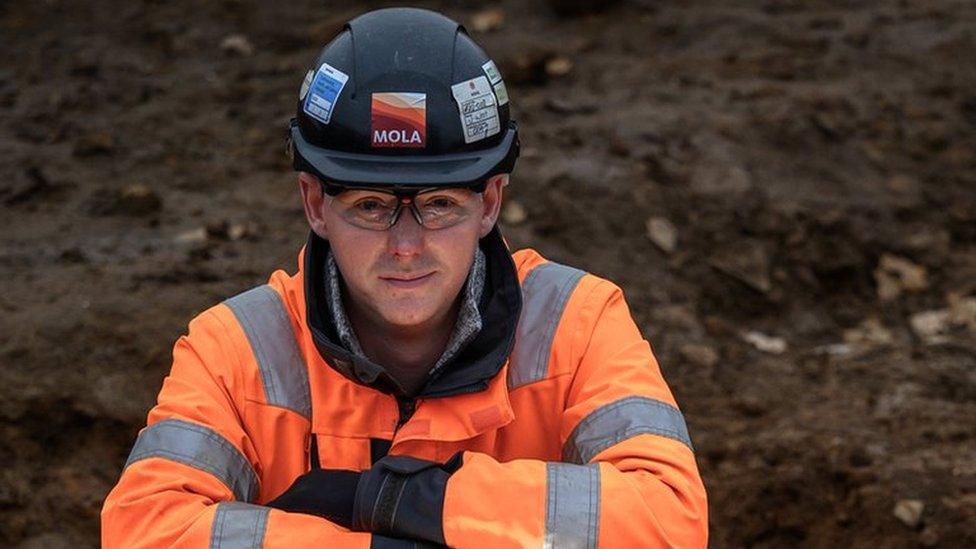
- Published8 December 2021
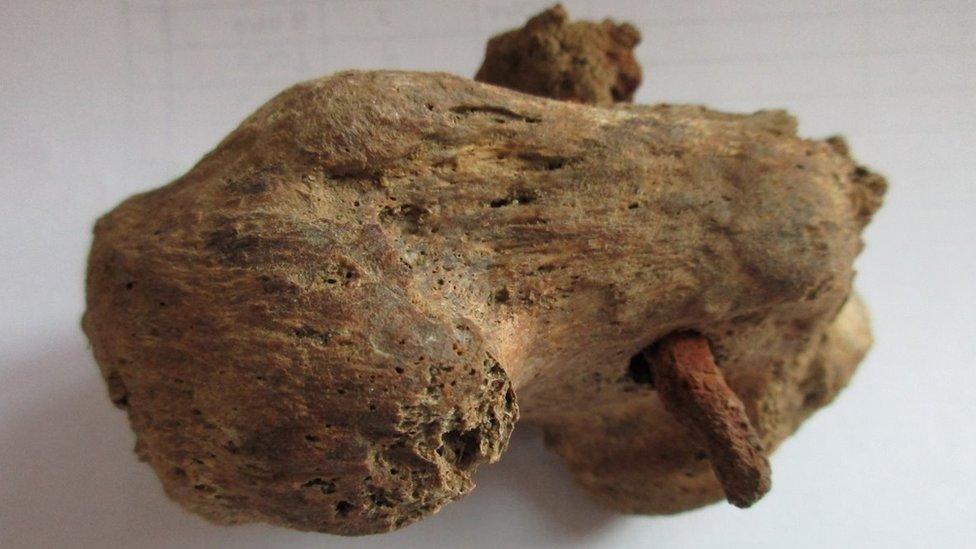
- Published6 December 2019
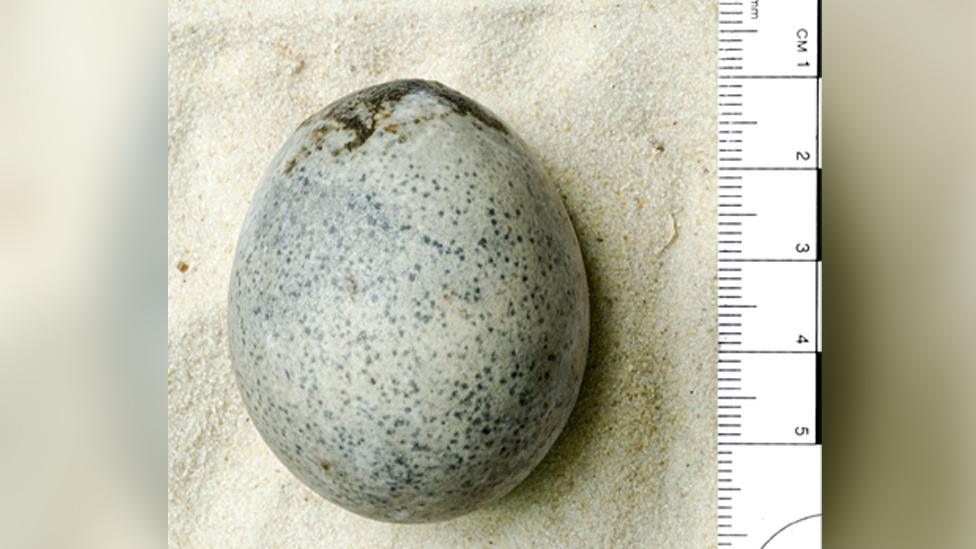
- Published23 July 2019
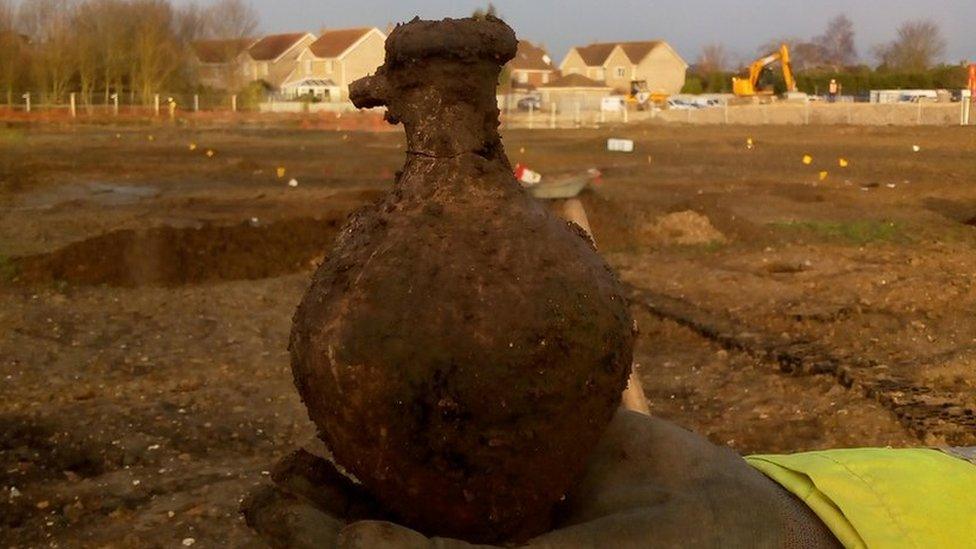
- Published16 June 2018
